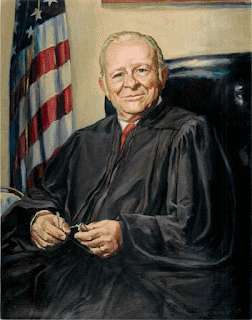2. Dave Ovalle used an emoji in the lede to this article about the Instagram trial before Judge Seitz, which resulted in a guilty verdict: "Jurors did not ♥ Cuban Harry’s Instagram defense." You'll only see it in the online version as the paper can't print it. Hilarious.
3. “Tom Davis is morally corrupt. He’s a womanizer, a bad husband, and he stole money from a charity he ran.” That was prosecutor Dan Goldman in his closing argument about his star witness, who testified against William Walters in this fascinating insider trading case. From the NYT:
In the end, though, it was the power of the insider trading narrative, which is so appealing to jurors, that helped convict Mr. Walters, known as Billy, on multiple counts of securities and wire fraud. His trades resulted in gains and losses avoided of about $43 million, making it one of the largest prosecutions ever.
Among those whose names came up at trial was Phil Mickelson, a World Golf Hall of Fame member who repaid a little over $1 million to the Securities and Exchange Commission for trading on information he received from Mr. Walters about Dean Foods. Mr. Mickelson was not charged with any wrongdoing, although it came out during trial that he would avoid testifying by asserting his Fifth Amendment privilege against self-incrimination.
Another name that surfaced briefly was Carl C. Icahn, the activist investor who is an unpaid adviser to President Trump. Prosecutors sought permission during the trial to introduce evidence that Mr. Walters traded on information he received about Mr. Icahn’s investments to show a general proclivity to use confidential information, but that never came to pass.
The key witness in the case was Thomas C. Davis, a former chairman of the board of Dean Foods who also worked as a consultant in an activist campaign involving Darden Restaurants. He admitted giving inside information about both companies to Mr. Walters, but this was far from a simple case of an insider making a mistake by tipping a friend.
Mr. Walters helped arrange loans of nearly $1 million to Mr. Davis, who had financial problems and never repaid the full amount he owed. Mr. Davis said that he innocently gave Mr. Walters information at first, but over time became a “virtual conduit” about corporate developments.
Their relationship developed to the point, Mr. Davis testified, that Mr. Walters gave him a prepaid cellphone that was nicknamed the “Bat Phone” over which they communicated in code about companies, such as referring to Dean Foods as the Dallas Cowboys.
4. How Appealing has now been around for 15 years. It was the legal blog that really started it all. Howard Bashman reflects on it here:
Let me begin with the favorable developments that I have observed over the past 15 years in the ability to access and cover appellate court rulings and developments. Today it is very easy to visit the websites of each of the U.S. courts of appeals and access freely and in a timely manner the published and unpublished decisions that those courts have issued. Ten of those 12 federal appellate courts provide free access online to oral argument recordings, and soon that number will increase to 11, with the U.S. Court of Appeals for the Tenth Circuit remaining as the lone holdout. The Ninth Circuit live streams video of its oral arguments on YouTube, and our local federal appellate court, the Third Circuit, has recently begun posting the video of certain oral arguments online.
Fifteen years ago, none of the federal appellate courts was providing oral argument audio or video online. Advances in technology, including improvement in the speed with which one can access large files over the internet and a vast decrease in the cost of electronic storage capacity, have made it feasible to allow for the widespread availability of oral argument audio online. In fact, earlier this year, many thousands listened live online, over the radio, and via cable news channels to the Ninth Circuit's oral argument of Washington state's challenge to President Donald Trump's first executive order imposing travel restrictions on those seeking to enter the United States from various countries.
Similarly, now in 2017 we can access online from the U.S. Supreme Court's own website that court's opinions and orders only moments after they are released to the news media physically present at the court's building in Washington, D.C. Transcripts of U.S. Supreme Court oral arguments are available free of charge from that court's website the same day that the arguments occurred. And on Friday afternoons of oral argument weeks, the U.S. Supreme Court posts online the audio files of the cases orally argued that week.

